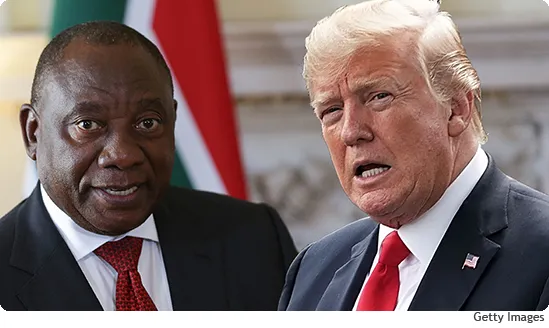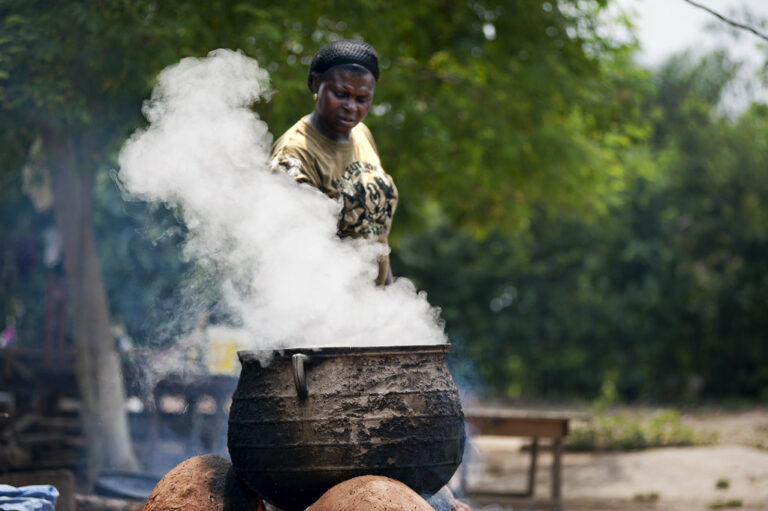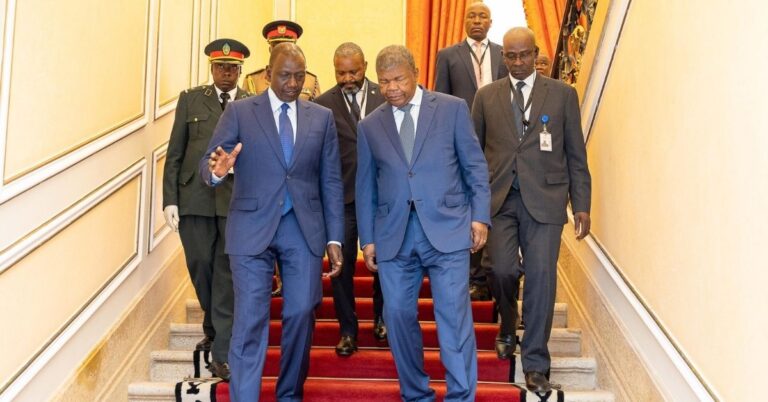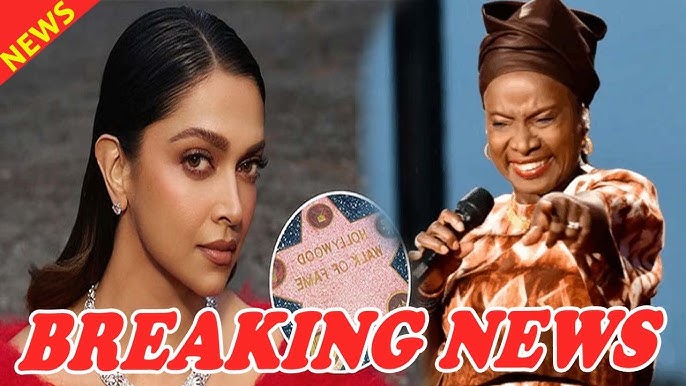
Although there are clear rifts in the bilateral relationship between the US and SA, there is some hope.
The future of the global geopolitical environment is unknown as everyone waits for Donald Trump to return. Although the United States (US) has traditionally placed little emphasis on Africa, Washington has become increasingly enraged with South Africa due to its alleged hostile foreign policy stances.
There are significant diplomatic hot spots because of Pretoria’s connections to Beijing, Tehran, and Moscow as well as its legal action against Israel at the International Court of Justice.
In the upcoming years, Washington and Pretoria’s policymakers and investors need to carefully examine the main points of contention in their bilateral relationship. What has changed during Trump’s first term and how does this affect ties with South Africa are two urgent questions.
The US and global economies are more erratic than they were when Trump first took office. He inherited favorable economic conditions in 2017 that included robust consumer confidence, accommodative monetary policy, and low inflation.
Those circumstances are no longer present. Due to recurring deficits, infrastructure investments, and spending during the epidemic, the US federal debt has increased from US$19 trillion in 2016 to almost US$33 trillion. These pressures are exacerbated by higher interest rates, which weaken budgetary stability.
Despite aggressive rate hikes by the Federal Reserve, inflation, which was moderate throughout Trump’s first term, is still present. Trump’s preference for fiscal growth and tax cuts may exacerbate deficits and erode investor trust in US economic leadership. Energy markets have been disrupted and global differences have increased due to geopolitical instability made worse by wars in the Middle East and Ukraine.
The impact of Trump’s return on the economy may be underestimated by financial markets. His first tenure was characterized by a combination of measures, including tax cuts and deregulation, followed by trade conflicts that caused instability. A rapid return to protectionism, including higher tariffs that impede GDP, fuel inflation, and upset international supply networks, may occur during Trump’s second term.
Given that Trump’s populist policies maintain significant inflationary pressures, investors anticipating a dovish Federal Reserve may instead experience prolonged monetary tightening. Early hopes for tax breaks and deregulation could soon be eclipsed by the wider economic consequences.
South Africa and other emerging markets are particularly susceptible to the combined risks of redollarization and reflation. Investors may turn back to the US dollar as a result of Trump’s protectionist policies and possible geopolitical upheavals, which might affect commodity prices or rekindle inflationary pressures. This would weaken currencies in emerging nations and undo the gains of previous rate cuts.
The geopolitical landscape of the world has also changed. Despite being damaged during Trump’s first term, the liberal world order mainly held together thanks to leaders like Emmanuelle Macron and Angela Merkel. This liberal consensus is broken today. The rise of far-right and illiberal movements coincides with the faltering credibility of global institutions. Traditional alliances will probably be threatened by Trump’s populist and ideologically flexible agenda, which will likely resonate more in this setting.
Nearer to home, since Trump’s first term, relations between the US and South Africa have deteriorated. The magnitude of this deteriorating bilateral relationship was shown by the introduction of a 2024 bill requesting a reassessment of relations. The question is whether such legislation will now be passed, given the Republican majority in both Houses of Congress. There is strong political support in Washington for the adoption of punitive measures against South Africa.
Furthermore, South Africa’s continuous eligibility as a recipient of the African Growth and Opportunity Act (AGOA) is arguably the most powerful tool Washington has over Pretoria. AGOA, which supports thousands of employment and generates vital foreign revenue, offers preferential access to the US market for a variety of goods and is scheduled to expire in September 2025.
Although South Africa will require some clever maneuvering to avoid being left out, AGOA might provide the ideal impetus for a rebalancing of the two nations’ relationship. This positive but unconventional perspective is supported by a number of things.
First, unlike South Africa, Washington views AGOA as a political instrument rather than an economic one. Given Trump’s propensity for making deals, this disparity implies that a deal is possible.
A strategy that employs more punishment than reward might, in fact, bring South Africa closer to the United States and compel it to change its stance on issues like Russia and Israel. The Trump administration will be less forgiving than the Obama and Biden administrations, which gave Pretoria a lengthy leash.
Washington must exercise caution, though, as overplaying its hand might drive Pretoria farther into the sphere of rivals like Beijing and Moscow.
The market and reputational costs of South Africa’s exclusion from AGOA are significant. The nation must portray itself as essential to US interests by leveraging its crucial mineral riches, democratic credentials, and position as a gateway to Africa.
Second, by establishing a clear distinction between its policies and those of the former African National Congress (ANC) government, South Africa’s Government of National Unity presents a chance to mend fences.
A more accommodative stance is indicated by the appointment of practical individuals like Ronald Lamola, Parks Tau, and seasoned diplomat Ebrahim Rasool. Additionally, President Cyril Ramaphosa has the chance to establish a personal relationship with Trump, which might be crucial in the years to come, as South Africa will host the G20 summit in 2025 and the US will host it in 2026.
Even though Pretoria has no control over many parts of US foreign policy toward South Africa, there are a few things that may be done to guarantee collaboration on common goals.
It is vital that South Africa ascertain what will take the place of Biden’s “21st Century US-African Partnership.” With a more transactional ‘America First’ strategy, Pretoria must design suitable foreign policies that place its own material interests in a more direct relationship with Washington.
This could be difficult since Pretoria has always had trouble defining and pursuing its national interests in a way that is distinct from the interests of other African or Global South nations. Furthermore, the ANC’s ideological perspective on international relations, which is based on an antiquated dedication to progressive internationalism, continues to dominate foreign policy notwithstanding the Government of National Unity.
With the US, a more straightforward and adaptable foreign policy is required, with clear and substantial interests expressed up front. It will be a waste of time to discuss lofty issues with the future Trump administration, such as the necessity of changing the international multilateral order.
Deeper collaboration on fostering a more favorable climate for private investment and building a stronger export-driven South African economy is probably what will catch on.
Over the next four years, South Africa’s foreign policy elite will be put to the test on how to pursue the former with other international partners while pursuing the latter with Washington. This issue should be addressed head-on.








